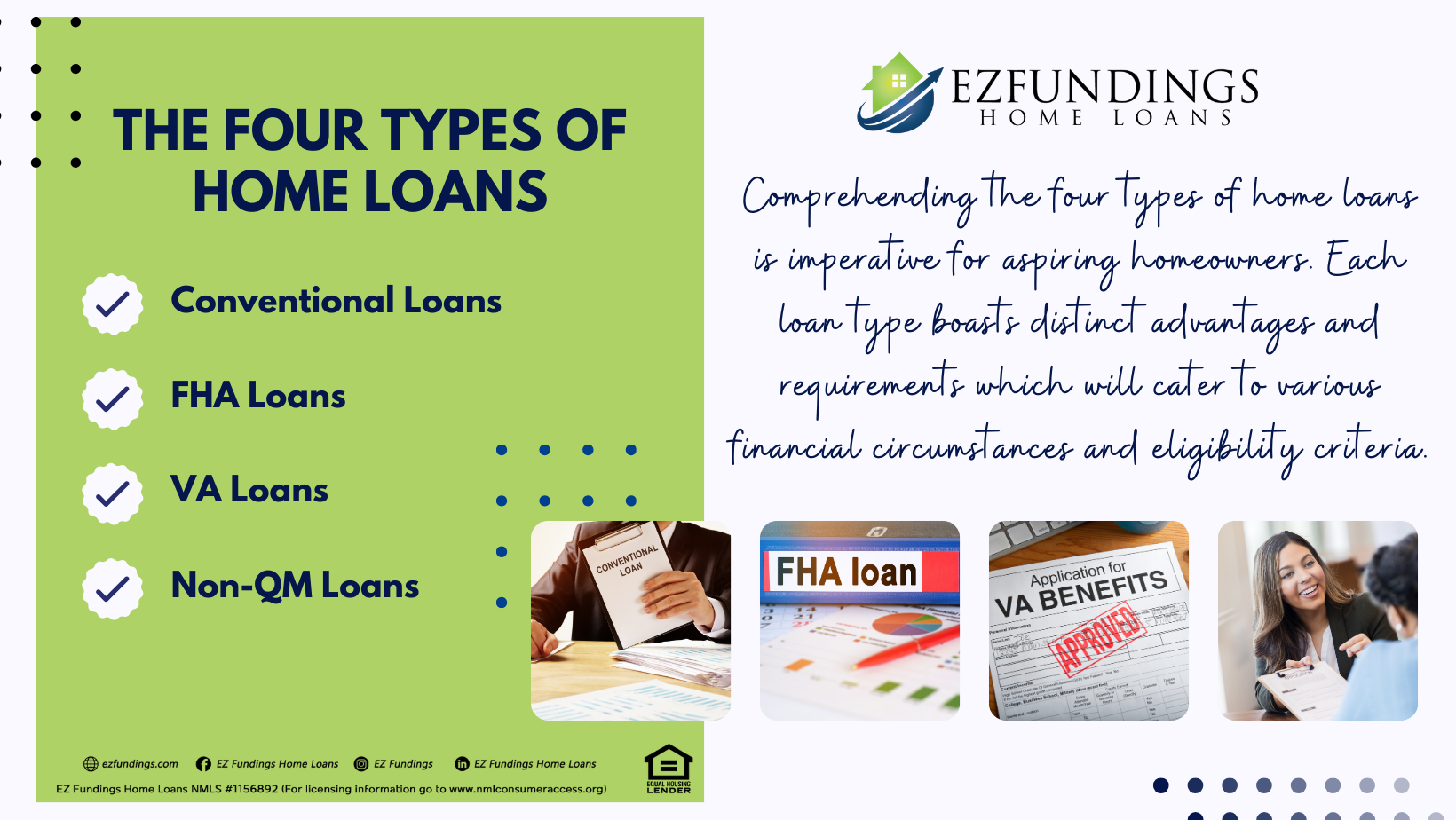It’s vital to grasp the various types of home loans available when considering purchasing a home. Each loan type boasts its own terms, requirements, and perks, tailored to diverse financial situations. Let’s delve into the four types of home loans to help you navigate the lending landscape effectively.
Conventional Loans
Conventional loans are the most prevalent home loan type. These loans lack backing from government agencies like the Federal Housing Administration (FHA) or the Department of Veterans Affairs (VA). Instead, they adhere to Fannie Mae and Freddie Mac’s guidelines. Moreover, borrowers generally need a higher credit score and must make a down payment of at least 3% to qualify for a conventional loan. Thus, conventional loans offer flexibility concerning property types and loan amounts despite their stricter criteria.

FHA Loans
FHA loans, insured by the Federal Housing Administration, offer accessibility to borrowers with lower credit scores and smaller down payments. FHA loans boast lenient requirements Particularly favored by first-time homebuyers. Moreover, borrowers can qualify with a credit score as low as 580 and a down payment as low as 3.5% with an FHA loan. Additionally, FHA loans feature competitive interest rates and may permit higher debt-to-income ratios compared to conventional loans.
VA Loans
VA loans are backed by the Department of Veterans Affairs exclusive to active-duty service members, veterans, and eligible spouses. These loans provide several benefits, including no down payment requirement and no private mortgage insurance (PMI). Furthermore, qualified borrowers can seamlessly finance a home purchase which will make them enjoy competitive interest rates and flexible qualification criteria. Thus, VA loans serve as a valuable resource for military personnel which enable homeownership without the financial burden of a down payment.
Non-QM Loans
Non-QM loans or non-qualified mortgage loans cater borrowers who fall short of conventional, FHA, or VA loan criteria. Moreover, non-QM loans offer an alternative solution tailored for individuals with unique financial situations such as self-employed individuals or those with irregular income. They provide flexibility to borrowers who may not qualify for traditional mortgage options despite potentially higher interest rates and stricter terms. Thus, Non-QM loans deliver customization to meet the diverse needs of borrowers in today’s housing market.

Get your copy of the First-time Home Buyer Guide for FREE. Click here.
Takeaways
Comprehending the four types of home loans is imperative for aspiring homeowners. Each loan type boasts distinct advantages and requirements which will cater to various financial circumstances and eligibility criteria. Moreover, careful consideration is crucial whether opting for a conventional loan, FHA loan, VA loan, or non-QM loan. Thus, one can navigate the home buying process confidently and secure a loan aligned with long-term financial goals by weighing options meticulously. (Learn more by reading about “Homeownership with Low to No Down Payment Options!”.)
